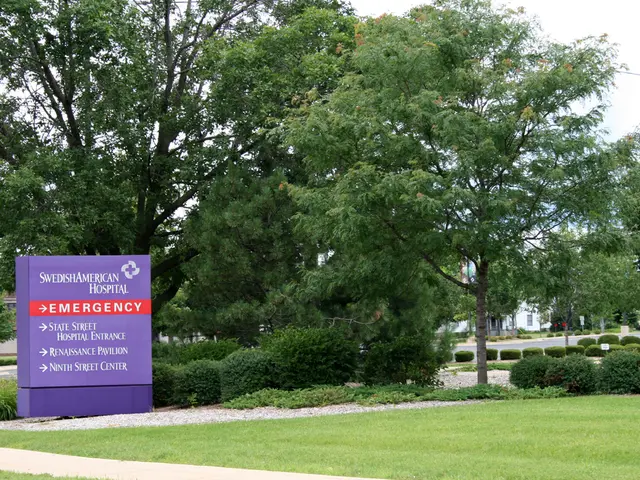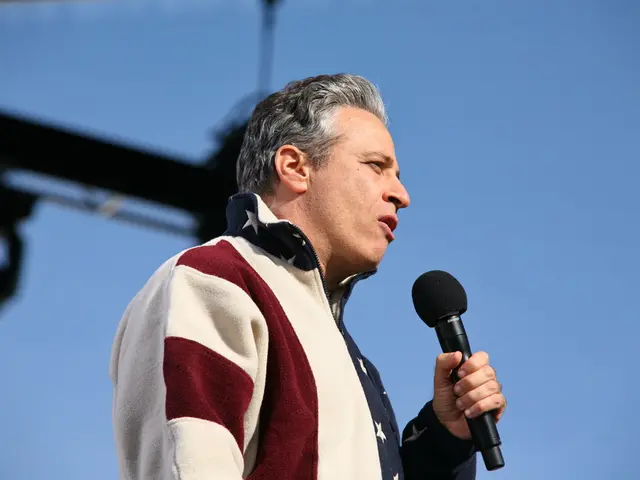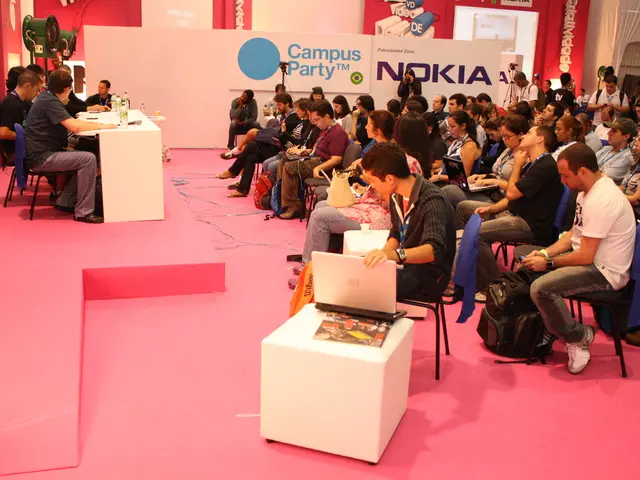AfD Party Holds Event with Elon Musk Amidst Controversy Surrounding Alleged "Nazi Salute" in Germany
Elon Musk, the tech titan, pulled off a shocking appearance at a rally for Germany's controversial Alternative for Germany (AfD) party on the weekend, proclaiming them as "the best hope" for the nation. This sudden move comes amidst ongoing scrutiny over a questionable gesture Musk made at an event earlier in the week, which has shades of the infamous Nazi salute.
Sporting a video link, Musk popped up at the Halle rally, urging the AfD chancellor candidate Alice Weidel and her supporters to hold onto their national pride. He argued that it's perfectly fine to be proud of German culture and values, as long as they aren't weakened by multiculturalism.
Musk even expressed his desire for Weidel to become the next chancellor after the elections on February 23. He grumbled about the annoying bureaucracy from the European Union.
The tech icon appeared to refer to Germany's tumultuous history, stating that the focus on past guilt should be dialed down. He asserted that children shouldn't bear the brunt of mistakes made by their parents or ancestors.
Weidel hailed Musk's support and echoed Trump's rally cry, vowing to "Make Germany Great Again."
Said Musk to the crowd of around 4,500 people, "The future of civilization could depend on this election," and added with excitement, "I'm really excited about the AfD. I think you're the best hope for the future of Germany."
Musk has been defending the AfD's leader, Weidel, for weeks, refusing to acknowledge them as a right-wing extremist group. He argued that Weidel being a gay woman negates any association with Hitler[3]. He also tagged Germany for being "comfortable with mediocrity" and went as far as to claim that the AfD could save the nation from succumbing to mediocrity[3].
Criticism has been raining down on Musk following a peculiar gesture at a Trump inauguration event, which some perceived as the "Sieg Heil" salute, now illegal in Germany and Austria[2]. The Anti-Defamation League initially defended Musk, chalking it up as an "awkward gesture" in a moment of enthusiasm, but later withdrew their support following Musk's Holocaust-minimizing jokes on Twitter about key Nazi leaders[2].
[1] Musk Lends His Support to AfD Amid Criticism, Criticizing Germany for Being 'Comfortable with Mediocrity'[2] Musk Faces Backlash Over Jokes about Key Nazi Leaders[3] Musk's Support for AfD: Factors at Play
For more on tech, business, and culture, follow us on Twitter, LinkedIn, & Instagram
Also Read:
Billionaires, Firms, & Investors Eye TikTok as Oracle MullsThe Ultimate Guide to Digital Marketing for Small BusinessesWorkplace Trends 2025: Attracting Talent, Health & More
- Elon Musk's controversial appearance at a German rally for the Alternative for Germany (AfD) party has sparked intense debate, with many questioning his stance on war-and-conflicts, politics, and policy-and-legislation.
- Musk's support for the AfD party has been met with criticism, especially considering his recent remarks about dialing down Germany's focus on past guilt, which aligns with pop-culture trends that gloss over historical atrocities.
- In the realm of entertainment and celebrities, Musk's actions have raised eyebrows, as his defense of the AfD leader, Alice Weidel, and his dismissal of them as a right-wing extremist group has ignited heated debates on social-media platforms.
- The tech billionaire's appearance at a rally, where he voiced his desire for Weidel to become the next chancellor, has also shed light on the business community's involvement in politics, bringing policy-and-legislation to the forefront of discussions.
- Advocates of multiculturalism have raised concerns over Musk's views on multiculturalism weakening German culture and values, also raising questions about general-news reports that suggest the AfD could potentially save Germany from succumbing to mediocrity.
- As Musk continues to attend political events, his actions have become a news story that intersects various domains, from technology and business to social-media and war-and-conflicts, underscoring the blurred lines between the realms of the virtual and the real.






